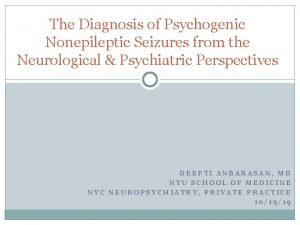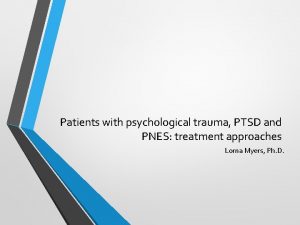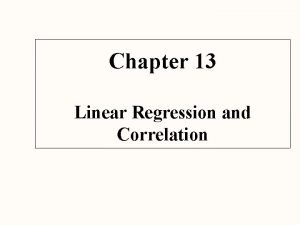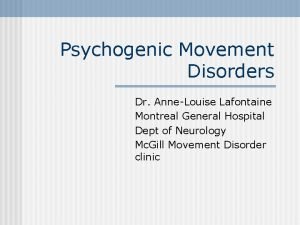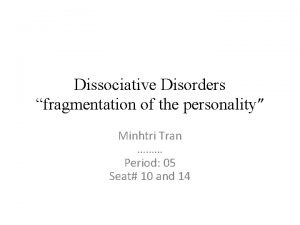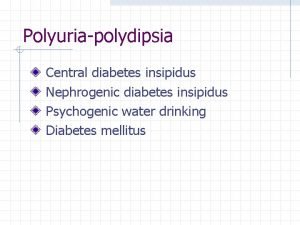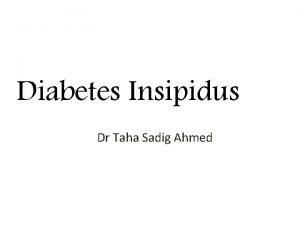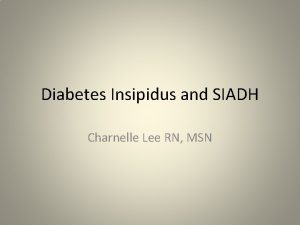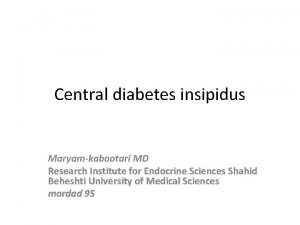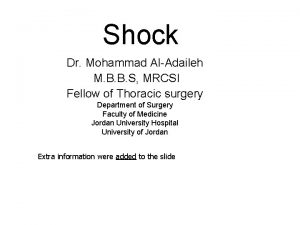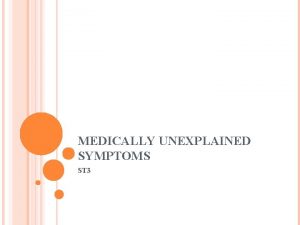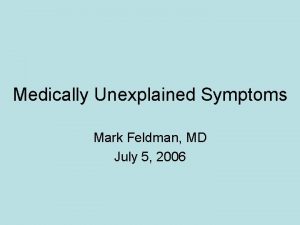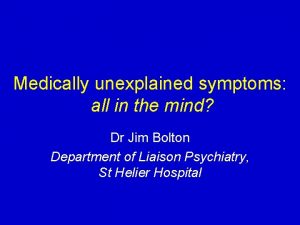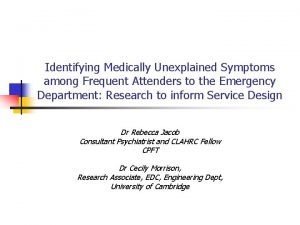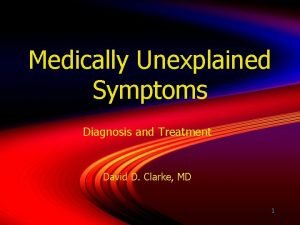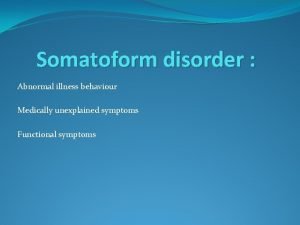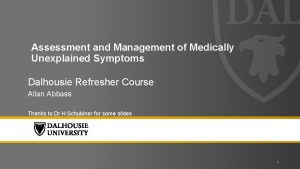Medically Unexplained Symptoms Psychogenic Non Epileptic Seizures PNES










- Slides: 10

Medically Unexplained Symptoms Psychogenic Non Epileptic Seizures (PNES) ERICA B CHISANGA CLAHRC COHORT 2 2011 -2012

PNES • Mapping out the follow up care of patients with a confirmed diagnosis of PNES who have undergone Video EEG Telemetry using assisted questionnaires and Client Receipt Inventory (CSRI).

Aim/Objectives • To provide evidence for better management of PNES • Identify effective therapies post diagnosis of PNES by reviewing current evidence-based literature • Establish perception of usefulness of new diagnosis of PNES in patients through the administration of questionnaires

Objectives • Communicate to commissioners, clinicians and patient which treatments have been effective in managing PNES based on the findings from the questionnaires and the current literature on PNES • Develop an integrated care pathway based on the findings from the questionnaires and current literature.

Background of the project • Patients with MUS are common in neurology and other specialties. • Patients repeatedly attend primary care /hospitals and are usually dissatisfied with the care that they receive. • MUS are strongly associated with psychiatric morbidity in particular anxiety and depression. • One such symptom/condition is seizures, often misdiagnosed as epilepsy and treated with various medications which prove to be ineffective • Cost the health service substantial amounts of money. CLAHRC 2011 -2012

Background of the project • Research studies conducted and published on NES in the United Kingdom in the last two decades have explored a number of areas which include the following: – Long term outcome of brief augmented psychodynamic interpersonal therapy for PNES, seizure control and healthcare utilisation – Acceptability and effectiveness of a strategy for the communication of the diagnosis of PNES. – Use of Conversation Analysis to distinguish between epileptic and PNES. CLAHRC 2011 -2012

Background of the project • There remains scope for qualitative research on patients’ perceptions of the diagnosis of PNES, its impact and that of therapy on their quality of life. • There also remains scope to evaluate service utilisation following a change of diagnosis from epilepsy to PNES. CLAHRC 2011 -2012

POOL All patients in adult Neurology services Seizure disorder Routine EEG Conclusive Epilepsy or Psychological Non epileptic seizures (PNES) Epilepsy Drug Treatment Successful? Yes Refer for presurgical or Detailed diagnostic assessment Video EEG Epilepsy + PNES No Epilepsy Surgical Candidate Discharge to GP Yes Surgery Yes No Drugs + Psychotherapy PNES Yes Psychotherapy

Challenges faced? • Juggling a fulltime job with doing the project • Keeping the time protected from regular work

What have I learned • Continued learning • More about the topic and services available • Theory of change- pathway, PPI engagement • IRAS application process • Writing PIS • Obtaining consent • REC process/review • R&D
